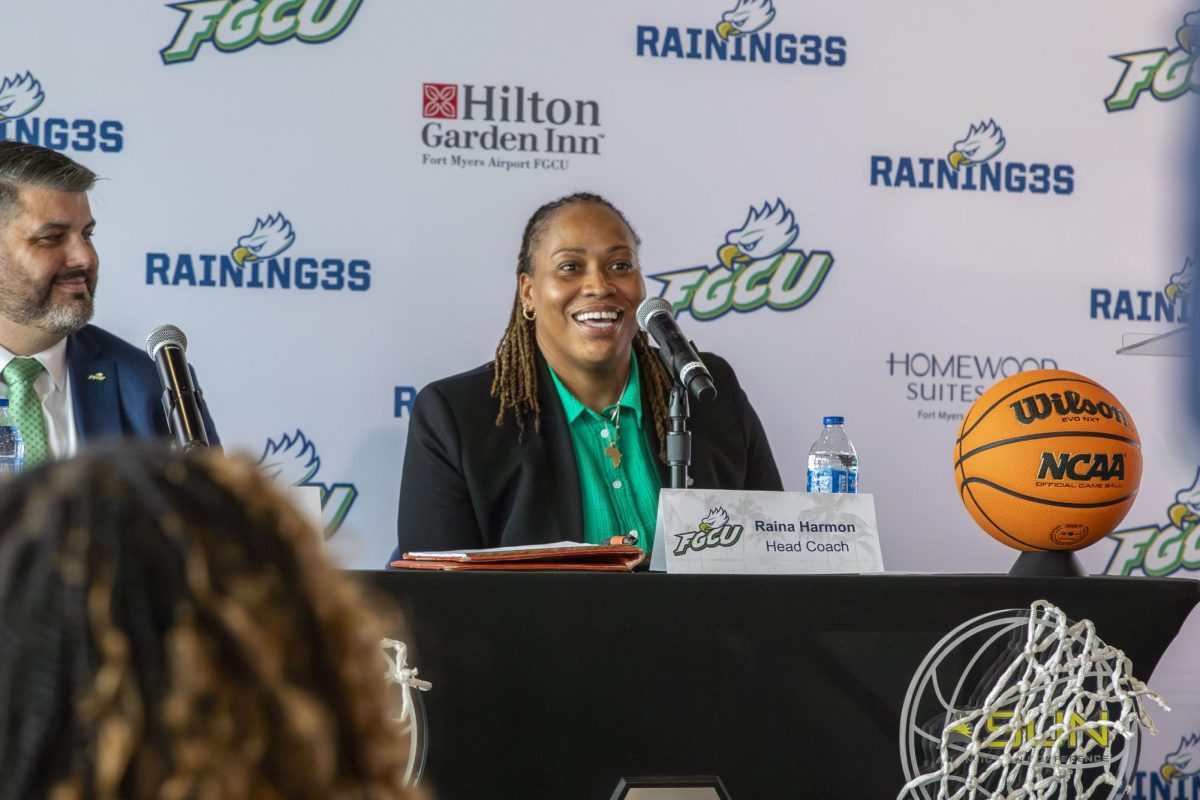We really need to get rid of the F word, and no, I’m not referring to the one that rhymes with duck.
It’s time to eradicate the term “feminism.”
The Oxford English dictionary has defined feminism as the advocacy of women’s rights on the grounds of political, social, and economic equality to men.
Sexism is defined as prejudice, stereotyping or discrimination, typically against women, on the basis of sex.
If one does not believe in the vision of feminism, one is sexist.
The issue with the word feminism is that it has a negative connotation. All too often when people think of the word feminism the vision of a crazy, misandrous, bra-burning woman full of angst fills one’s mind.
I constantly hear people say, “I’m a feminist, but not the crazy kind, I swear.”
Why is this necessary?
The real statement should be, “I care about the rights of everyone, and you should too.”
There isn’t a word for someone that is seeking equality of races, and there needn’t be. It’s simple: if someone isn’t, they’re considered racist.
The antonyms of racism and sexism alike are noted as tolerance and fairness.
If someone is not seeking equality of the sexes, they should be considered sexist.
We do not treat racism the same as sexism, but in essence they’re from the same family— predjudice.
With both terms, groups of people have been subjugated by a majority. The difference many people find with gender equality is that women have never been physically separated from men.
During the civil-rights movement, water fountains, schools, bathrooms, etc., separated black people and white people.
During and before the Holocaust, Jews, Gypsies, communists, homosexuals, etc., were separated from the majority by being placed in ghettos and camps.
Women, on the other hand, have always lived within the majority. Women in America were never placed in separate communities or told to drink from separate water fountains. The issue with this is that women have in fact been separated.
Women have been robbed of the right to vote, to own property, to be educated, to work, to have a credit card… the list goes on.
Although many of these have changed, there is still a divide— and this divide is not only detrimental to women.
Emma Watson announced the “He For She” global campaign on Sept. 20 when she addressed the United Nations General Assembly. Although for most, the first thing that comes to mind when one thinks of Watson is her alter ego Hermione Granger, she is in fact a UN ambassador.
At the General Assembly, Watson delivered a speech in which she formally invited men to engage in the issue of gender equality.
“Men — I would like to take this opportunity to extend your formal invitation. Gender Equality is your issue too. Because to date, I’ve seen my father’s role as a parent being valued less by society despite my needing his presence as a child as much as my mother’s. I’ve seen a young man suffering from mental illness unable to ask for help for fear it would make him less of a man. I’ve seen men made fragile and insecure by a distorted sense of what constitutes male success. Men don’t have the benefits of equality either,” Watson said.
All too often, men and women alike are told to “man up,” as if men are unable to feel emotion or be sensitive. Men do not need to be aggressive; women do not need to be submissive.
Gender inequality harms men just as much as women, and robbing men of the right to equality is inherently wrong.
Using the word “feminism” also makes men feel as though they are excluded, as though the fem-portion of that word makes it a female issue.
After the video of NFL running back Ray Rice assaulting his then-fiancée was released, a call for action was heard around the world.
U.S. soccer goalie Hope Solo was arrested in June for assaulting her 17-year-old nephew and sister. She plead not guilty to two counts of domestic violence, but there is still an ongoing investigation— and she is still playing on the women’s soccer team.
Although there isn’t a video of her assaulting her nephew as with the Ray Rice case, he was found by police with a bleeding ear and reddened nose and jaw. Her sister was found with a swollen cheek.
These situations are so similar, yet looked at as so vastly different simply because of the sex of the perpetrator — and I’m perplexed as to why.
I am certainly not condoning either of these acts of violence, nor denying that typically there is a larger issue of men being violent toward women. I am simply questioning why these cases are looked at as being so different. Again, men do not need to be aggressive, and women do not need to be submissive — and clearly this isn’t the case.
One of the biggest problems of gender equality, specifically on college campuses, is sexual assault and harassment.
During the University of Florida rape issues this month, university officials sent emails informing women about the Rape Aggression Defense classes offered. This also happened on the FGCU campus, as if to say it is a woman’s responsibility to not get raped.
Women (and men) should be careful, but instead of living in a culture of response, we should be living in a culture of prevention.
The “It’s On Us” campaign was announced this past week by the Obama administration. This campaign aims to end sexual assault by involving the entire country. It is not aiming to do this by telling women to be careful, have a buddy, or carry pepper spray. The campaign’s purpose isn’t aimed at simply telling men to not rape.
The campaign is telling everyone not to be a bystander of sexual assault, to realize what consent is and isn’t, to never blame the victim, to get a friend home safe.
To end the culture of rape and aggression in our community.
To allow people to feel safe.
To allow for equality.
Equality of all people is essential, but we’re not going to get there by perpetuating the statement, “I’m a feminist, but not the crazy kind, I swear.”
Stop saying feminism.
If we change the rhetoric to “I care about people — all people. I care about equality in all forms, and you should too,” maybe the light at the end of the tunnel will get a little bit brighter.
All too often I hear, “This is how it has always been,” but if we continue with this ideology, then when will it change?
If not now, when?
If not us, who?
Categories:
Stop feminism
October 3, 2014
Story continues below advertisement
More to Discover



























